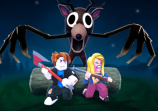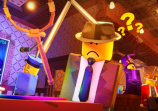As most of you know by now, Flappy Bird is now a thing of the past. The bird is dead, and may the little bastard not rest peacefully. But what none of us know is exactly why the game's creator, Dong Nguyen, decided to take down the game in the first place. Nguyen was fairly quiet during the game's time in the sun, speaking only through the occasional message he posted via his Twitter account. Amazingly, Forbes managed to get a one-on-one interview with Nguyen, who spoke on his motivations for the game and why he decided to do away with it.
"Flappy Bird was designed to play in a few minutes when you are relaxed," said Nguyen. "But it happened to become an addictive product. I think it has become a problem. To solve that problem, it's best to take down Flappy Bird. It's gone forever." There you have it, Nguyen got rid of Flappy Bird because it was apparently addictive.
Believe it or not, that's Nguyen's claim, who told Forbes that the game was an anchor on his conscience, even causing him restless nights. The rumored $50,000 a day the app was supposedly bringing in can buy a lot of things save for a good night's sleep. He also denied rumors that his decision had anything to do with rumored legal action brought forth from companies for Flappy Bird's strikingly similar gameplay and physical appearance, like those Super Mario-esque pipes.
In the end, Nguyen has no doubts that removing the game was the right choice, saying, "I don't think it's a mistake...I have thought it through." While Flappy Bird is no more, Nguyen's other games are still going strong, and he'll continue to work on developing more titles. "After the success of Flappy Bird, I feel more confident, and I have freedom to do what I want to do."
As for all those who helped make Flappy Bird the hit game it was, Nguyen says to them: "Thank you very much for playing my game."








